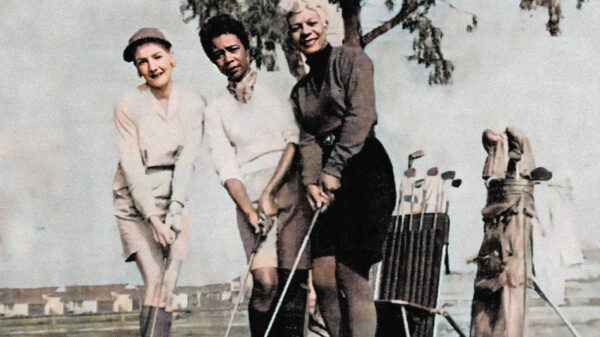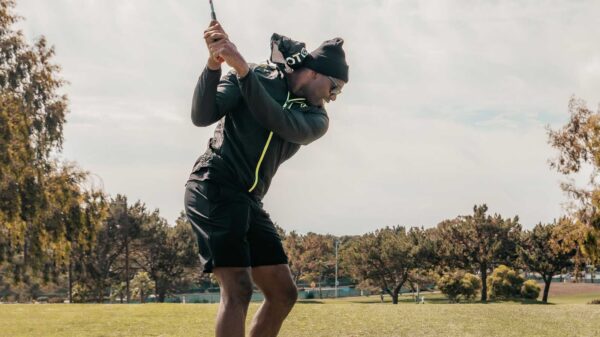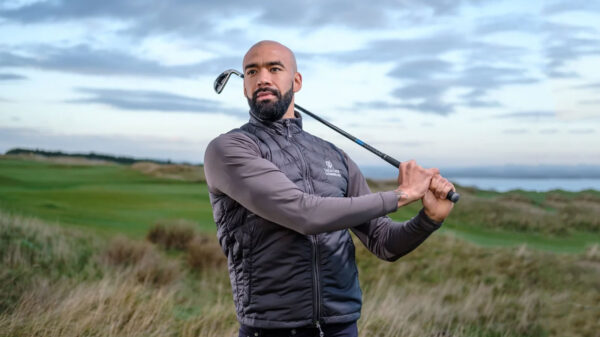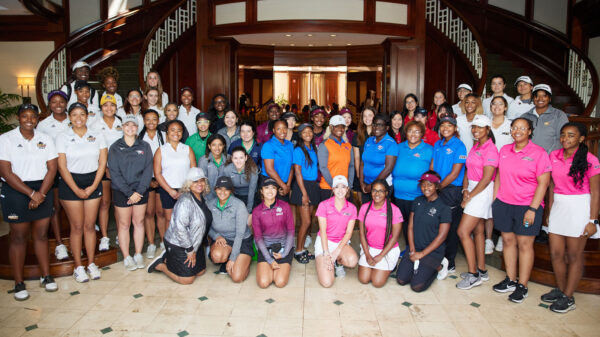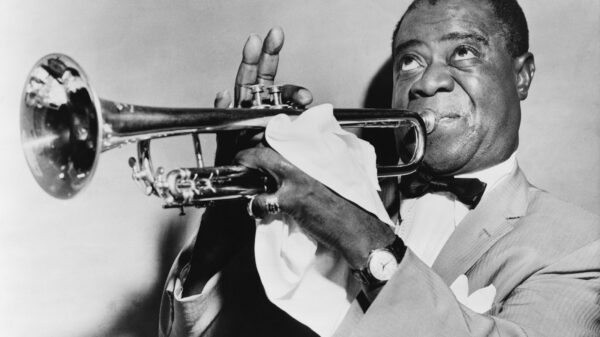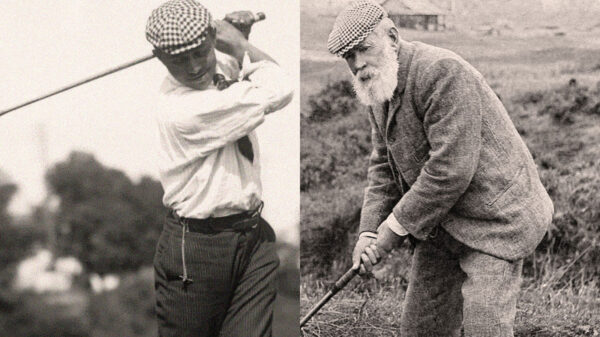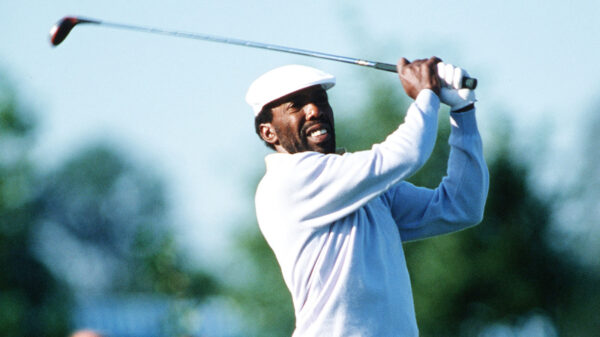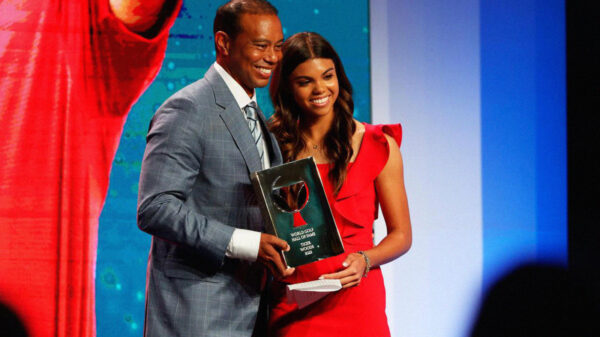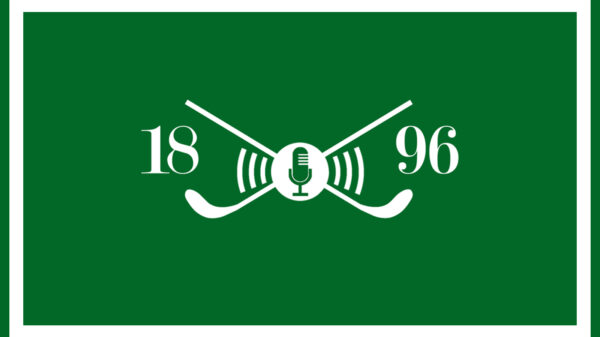There is no Tiger Woods, no Calvin Peete, no Lee Elder and no Charlie Sifford without John Matthew Shippen, Jr.
The first American-born golf professional was a melanated man who grew up in the shadows of one of North America’s venerated courses. Born in December 1879 in Washington D.C. to a once enslaved father, Shippen grew up on Long Island in southeastern New York State.
He integrated the U.S. Open in 1896 when it was held at Long Island’s Shinnecock Hills Golf Club. He finished in a tie for fifth.
The New York Times reported Shippen’s presence was protested.
“James Park played with Oscar Bunn, the colored caddie, as an accommodation,” The Times wrote in its July 19, 1896 edition. “Shippen, the other Shinnecock caddie, and Bunn played good golf. The professional golfers object to colored boys meeting them on equal terms, and they held a meeting on Thursday night to protest against it. They sent a petition to the offers of the United States Golf Association, but nothing more has been heard of it.”
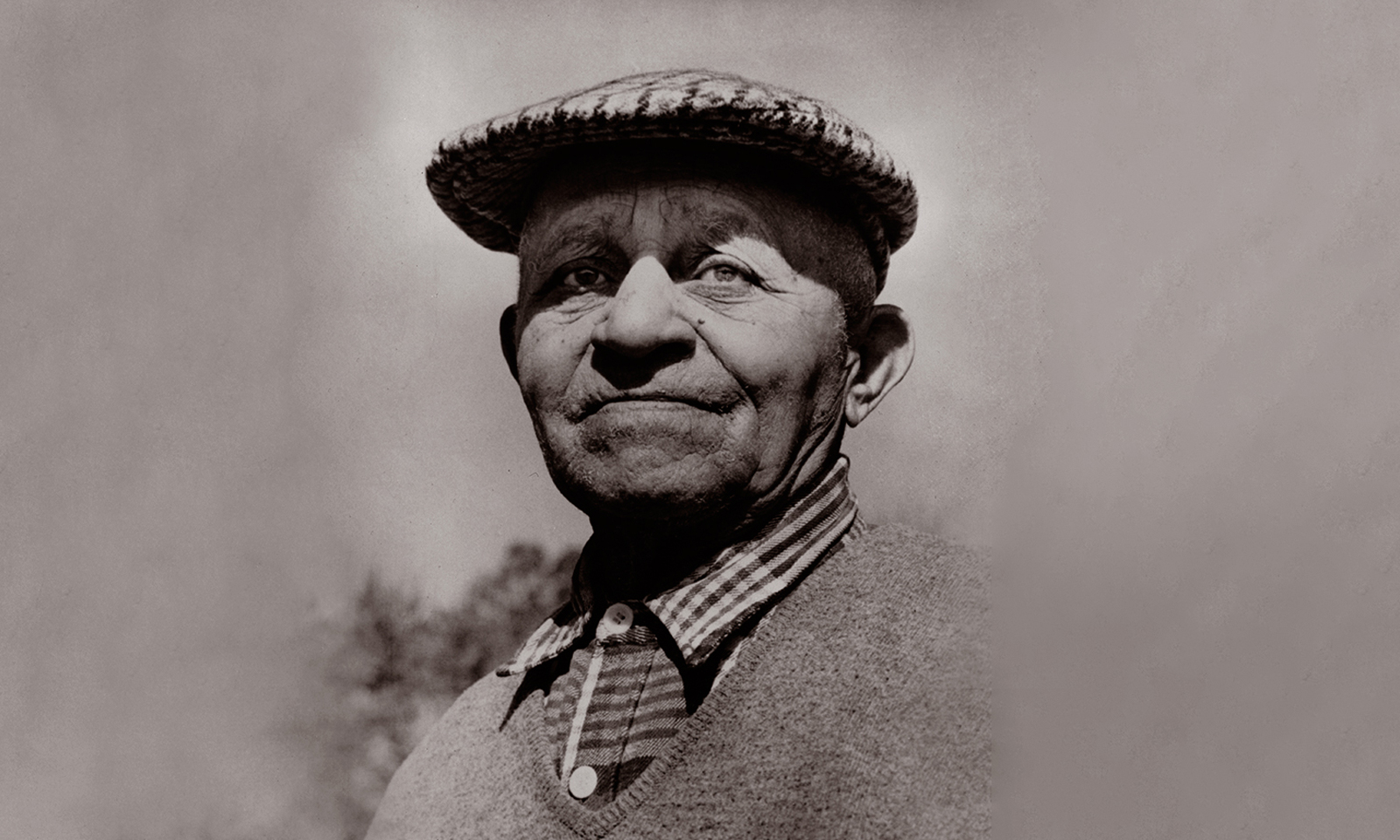
John Shippen
Shippen shot a 78 in the opening round that day that included an eagle, par, birdie finish on the way in at Shinnecock Hills. He was tied with eventual winner James Foulis after 18 holes. Foulis shot a final round 74 en route to the victory. Meanwhile, Shippen shot an 81 for the second round – a round that started with a double bogey at the first hole and a triple at hole No. 15.
“I like to think of all of our championships as the ultimate meritocracy”
– USGA Senior Director of Championships John Bodenhamer
Shippen would play the U.S. Open Championship five other times in his career. He finished tied for 25th in 1899, tied for 27th in 1900, tied for fifth in the 1902 tournament at the Garden City Golf Club in New Jersey. He was cut after posting a 96 and 89 in 1908 and finished in a tie for 41st in 1913.
Shippen’s second-round 73 at The Country Club in Brookline, Mass., was his lowest score in 20 rounds the U.S. Open. At the time, he was only three strokes behind eventual winner Francis Ouimet.
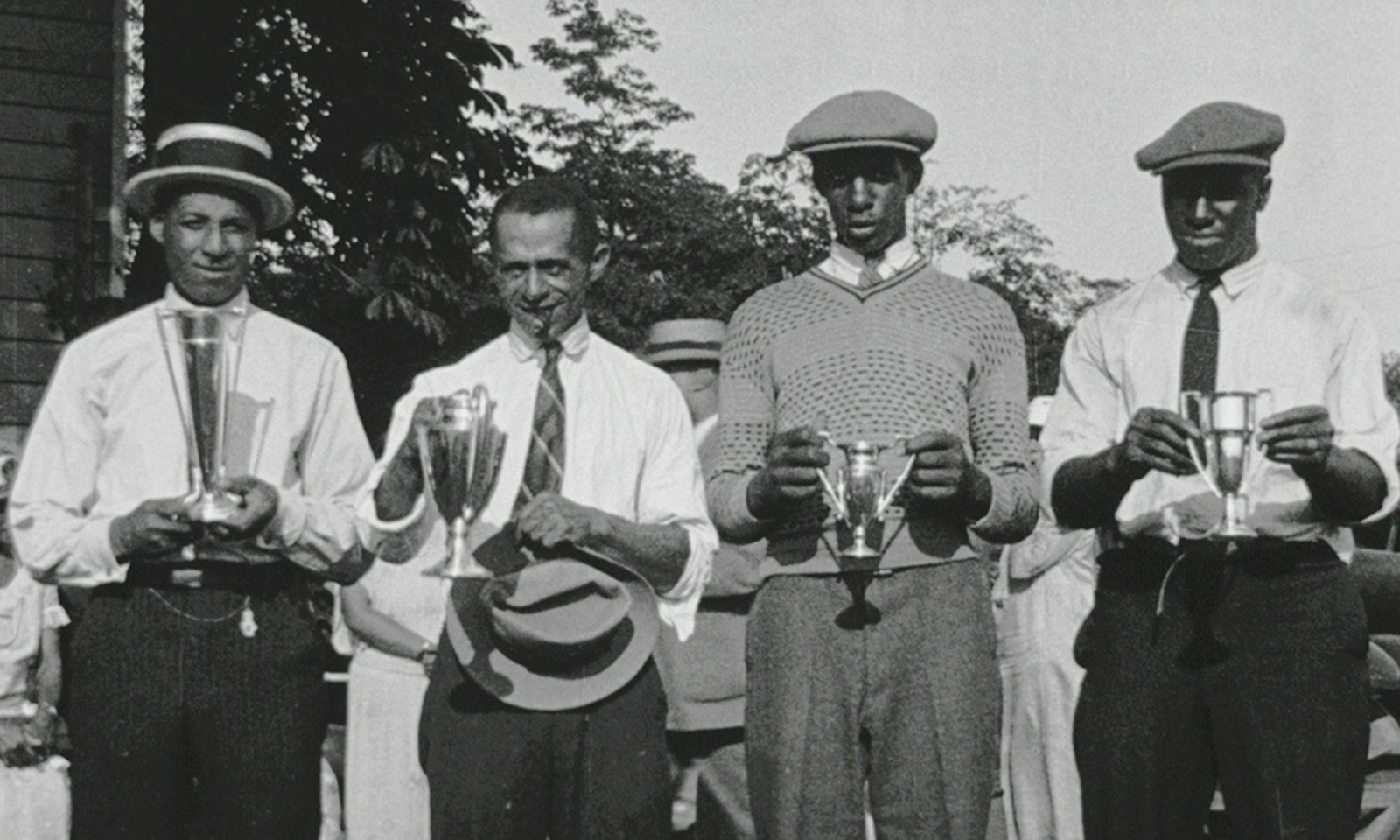
Photo of John Shippen (above 2nd from left)
Two months after Shippen’s final U.S. Open appearance, Ted Rhodes was born in Nashville. Rhodes would be the next Black golfer to tee up at the U.S. Open – in 1948.
Though the high-water mark of his playing career were the pair of top five finishes at the U.S. Open, Shippen’s biggest impact may have come later. He became the second club professional at Aronimink Golf Club just outside of Philadelphia.
Aronimink will have an opportunity to share its unique history with the wider golf world in 2026 when it hosts the PGA Championship.
Later in his career, Shippen was the club professional and groundskeeper at the Shady Rest Golf Course in Scotch Plains, New Jersey – the oldest African-American course in the country. Eventually, Shady Rest was purchased and renamed the Scotch Hills Golf and Country Club. Today, the nine-hole course is a 2,247-yard Par-3 facility that has a plaque remembering Shippen’s impact on the game, and Shady Rest.
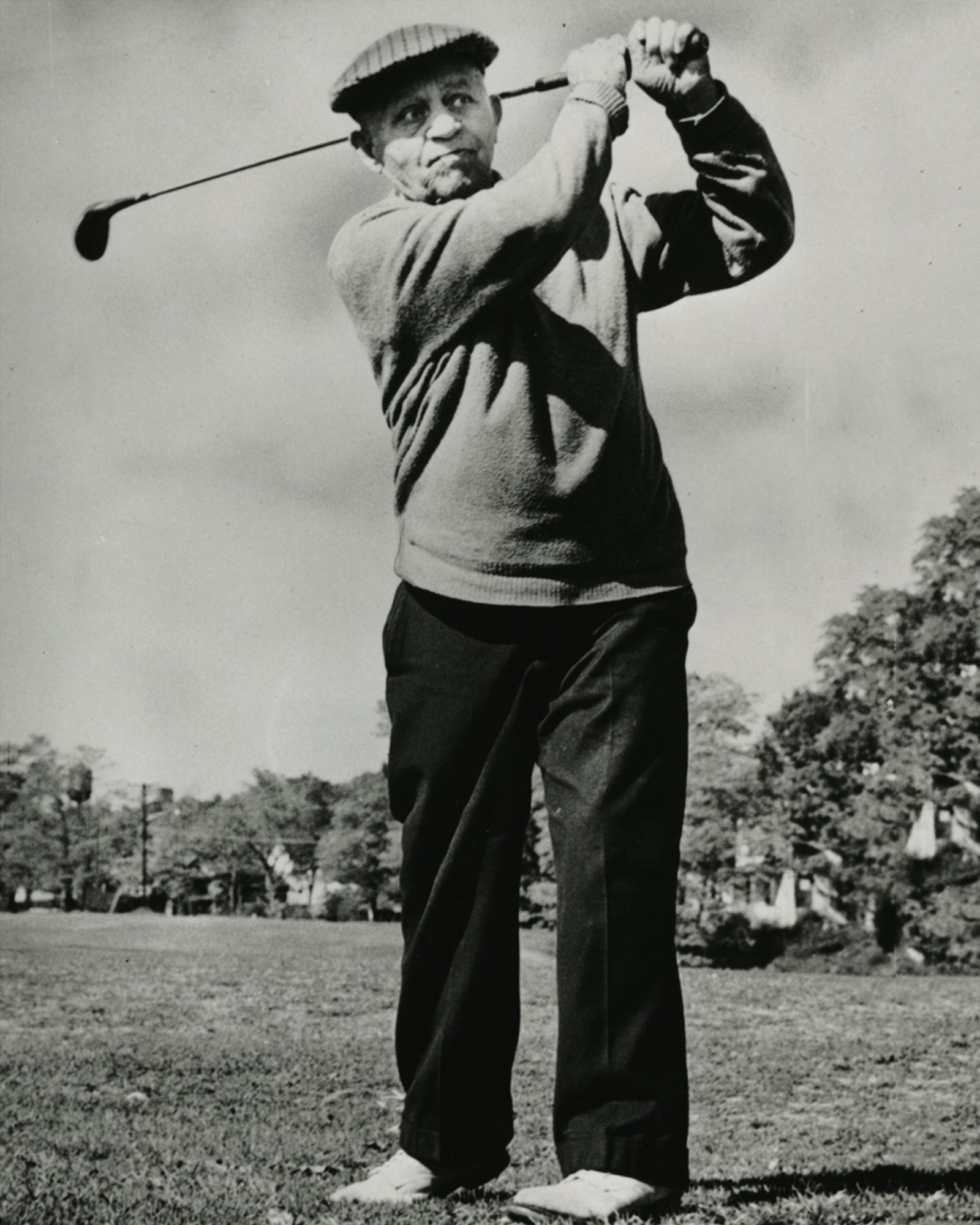
John Shippen
Shippen died in May 1968. He was 88. Months before Shippen’s flame was extinguished, Elder earned his PGA Tour card.
Though Shippen was nearly ostracized from golf, and conveniently forgotten by the sports mythologists for decades, his trailblazing path is why USGA officials can now call their centerpiece tournament the ultimate meritocracy.
“I like to think of all of our championships as the ultimate meritocracy,” USGA Senior Director of Championships John Bodenhamer told reporters on June 16. “You earn your way in. Really our championships espouse the values that make our country great. It doesn’t matter your background, the address you come from, the shape of your swing, the clubs in your bag. If you can get the ball in the hole, you can play in the U.S. Open, and we’re very proud of that.”



